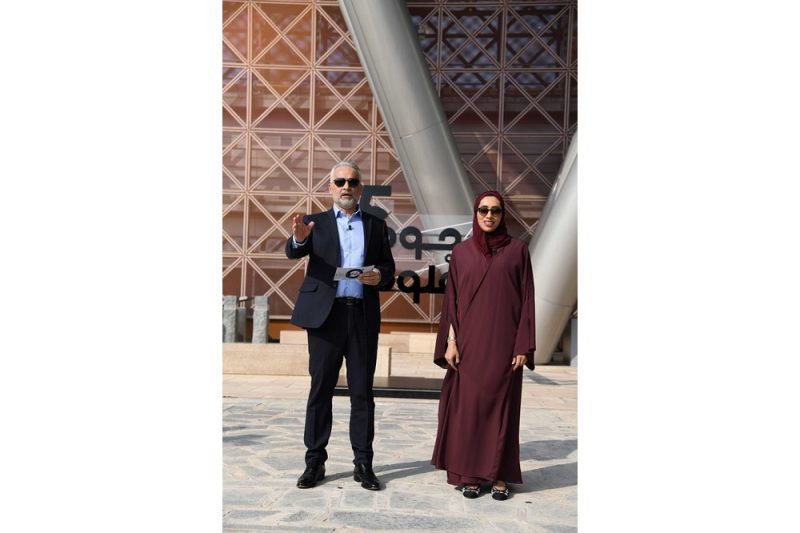Doha, Qatar —
After three rounds of casting, the seven remaining participants vying to win season 15’s Stars of Science have advanced to the next stage, also known as the ‘Proof of Concept’. This crucial stage will see them push the boundaries of their scientific knowledge, collaborate with industry experts, and demonstrate their scientific ideas to a panel of judges.

Stars of Science, Qatar Foundation’s edutainment TV initiative, offers Arab entrepreneurs and innovators a platform to transform their innovations from ideas to tangible solutions with the support of experienced mentors. This season’s participants are employing artificial intelligence to improve health outcomes in both humans and animals.
Mohamed Ishag Hassan Gama from Sudan introduced his invention, a smart bone-fracture cast, equipped with different sensors to monitor the healing process, pain, and other biometric signals, while Aly Magdy Mohamed from Egypt presented a multi-purpose smart marine drone lifeguard that can help rescue lives at sea, with its carbon-free model also supporting the biodiversity of marine life.
Utilizing artificial intelligence for healthcare diagnostics, Saeed Zahran from Lebanon is looking to develop an electronic nose that detects and predicts an epileptic seizure episode early and notifies the patient beforehand. Abdallah Alhaj Sulaiman from Syria, also a Ph.D. candidate at Hamad Bin Khalifa University, found a novel way to mitigate the environmental harm caused by the disposal of whey by dairy companies while producing ethanol. Through his invention, a milk whey fermentation for efficient ethanol production, he aims to demonstrate that fermenting the lactose in whey produces an ethanol-tolerant yeast, which can act as a viable source of energy.
For Mohammed Laouacheria and Amir Mattar Jaber Mattar Alenezi, from Algeria and Bahrain respectively, their passion for animal life lies at the heart of their individual projects.
Laouacheria has devised a wearable device utilizing auscultation sensors, a microcontroller, and wireless communication tools to monitor bio-signals from cows, thereby safeguarding veterinarians and healthy cattle against exposure to pathogens from sick animals, while
Alenezi has created a falcon training device to help automate the sport while enhancing the falcon’s stamina during training.
Mohammed Abbas Albumijdad, a Saudi mechanical engineer, is seeking to revolutionize safety standards for inspection at construction sites with his wall climbing robot, which he intends to work on vertical surfaces to perform safety checks.
Filming for Season 15 is taking place at the Stars of Science studios inside Qatar Science & Technology Park (QSTP) –a member of Qatar Foundation (QF), and part of QF’s wider environment of research, development, and innovation – where the program has created a network of local and international partnerships that contribute to its success.
Members of the show’s expanding alumni community continue to return as guest jurors and mentors. Sevag Babikian, who secured the third position in Stars of Science Season 8, has been returning to the program as a mentor in mechatronics. He said: “Stars of Science was, for me, a transformative journey. I’m thrilled to be part of this community, and to lend my support and share my experiences, just as I was once guided by those who came before me.”
Long-standing Stars of Science hostKhaled Al Jumaily has been a part of the show since its inception. Commenting on his own journey, Al Jumaily said: “Being a part of the show from its very beginning to Season 15 fills me with immense pride, satisfaction and responsibility. Witnessing the dedication of this season’s contestants towards scientific excellence is very inspiring, and I am sure that it will continue to positively impact our region and beyond.”



















